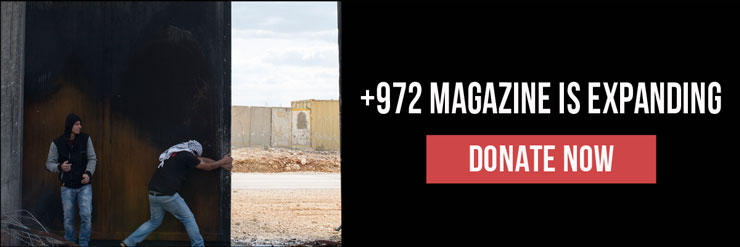Dareen Tatour, who was arrested and jailed for publishing a poem on Facebook, will remain under house arrest, preventing her from working or leading a normal life.
By Yoav Haifawi
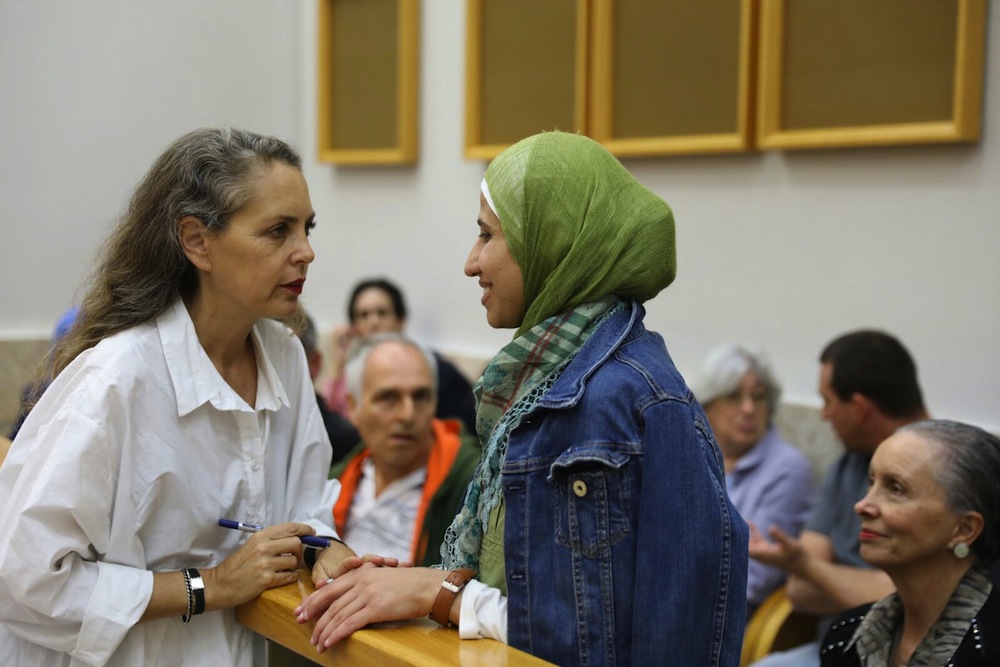
The media calm in recent months could have fooled the casual reader into thinking that the trial of Dareen Tatour for her poetry has already ended. After all, how much can abuse can the poet face for one poem and two statuses on Facebook?
The silence is misleading. More than two years and two months after her arrest in October 2015, Tatour’s trial drags on languidly in the Nazareth court with no end in sight. On Monday, December 4, the remand judge once again rejected her request to be released from the house arrest imposed on her “until the end of legal proceedings.”
New testimony regarding “The Next Martyr”
Tatour, 34, from Reineh near Nazareth, was arrested by Israeli police on October 11th, 2015, and later indicted of incitement to violence and support of a terrorist organization, all for publishing a poem, “Resist my people, resist them”, and two Facebook statuses. The prosecution claimed that her publications at the beginning of October 2015 should be read in the context of the Palestinian “third intifada,” which was characterized by attacks by unaffiliated individuals.
Tatour replied that her publications contain no call for violence, to which she objects, and that they express legitimate protest and call for struggle against Israeli restrictions on the right of Muslims to pray in Al-Aqsa and against the crimes of the occupation and in particular the killing of innocent Palestinians. She also claimed, bringing experts to prove this claim, that the police both mistranslated and misinterpreted her poem.
Following her arrest, Tatour was jailed for three months in three different prisons. She was later released to strict house arrest, forced to wear an ankle monitor. As the authorities demanded that she be distanced from the Nazareth region, her family had to rent an apartment in Kiryat Ono, just outside Tel Aviv, to hold her there. She was forbidden from using the Internet.
Gradually, through many appeals and legal battles, which met stiff resistance from the prosecution, the conditions of the house arrest were somewhat eased. In July 2016 she was allowed to continue her house arrest at her home, and in November of that year the ankle was removed. Gradually she was allowed to leave the house for limited hours, but with the required accompaniment of custodians at every step.
The last witness in the case was heard on April 27, and the judge gave each of the parties 45 days to submit written summaries. The prosecution requested a postponement and finally submitted its summaries at the end of June.
While working on the defense summaries, the team from Attorney Gabi Lasky’s office came upon an important piece of evidence concerning one of the main points of the indictment, the publication of a profile picture with the text “I’m the next martyr” (the word was written in its masculine form, “shaheed,” in Arabic). In fact, as we learned from the testimonies of the police officers during the trial, the publication of this picture was the immediate trigger for the night raid on the poet’s home and her “military style” detention. Police intelligence poorly interpreted this status as a declaration of her intention to carry out an attack. Only after the arrest did officers search through Tatour’s Facebook and find the other publications that are mentioned in the indictment.
Tatour explained during both her police interrogations and testimony in court that she, along with many others, shared this profile picture to protest the killing of innocent Palestinians. It was published, for example, after the burning alive of Muhammad Abu Khdeir in Jerusalem in July 2014, and as a response to the police killing of Kheir Hamdan in Kafr Kana (just near Reineh) in November of that year.
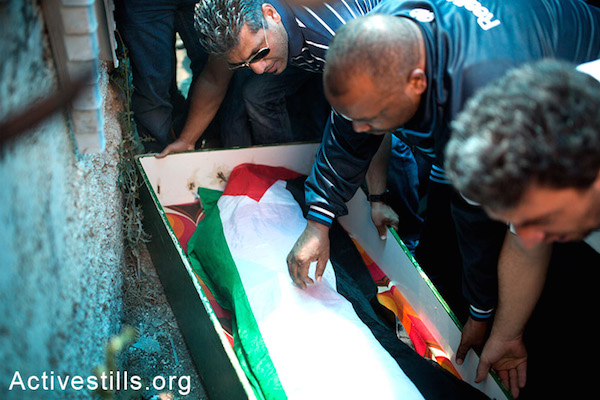
The prosecutor claimed in her summaries that Tatour had lied about the publication date of this picture. As evidence she mentioned that it was found on Tatour’s phone as a file dated just prior to her detention. The police computer expert was asked during cross-examination whether he had checked when Tatour first published the picture. He said he did not know whether there was any way to check it.
The defense found the picture on Tatour’s Facebook page, and Facebook itself clearly shows the date of its first publication in July 2014, as she originally claimed. Moreover, the publication of the picture in the context of protests against Abu Khdeir’s murder also shows the context in which Tatour uses the word shaheed as a “martyr” or “victim” of Israeli violence, rather than as an attacker, a subject that has been at the center of much of the trial.
Evidence of discriminatory enforcement
From the beginning of the trial, the defense argued that Tatour’s arrest and trial constituted discriminatory enforcement, while others who had published far more “offensive” material were neither investigated nor tried. In particular, the defense argued that the attitude of the police and the prosecution is biased against the Arab public. However, the prevailing atmosphere in Israeli courts, which view every Arab protesting against the regime as a security risk, makes this claim difficult to prove. It can always be argued that every publication has special circumstances that are taken into account.
In an unexpected coincidence, the defense found a golden opportunity to strengthen its argument when Israel’s Culture Minister, Miri Regev, published the exact same video on her Facebook page for which Tatour was indicted, in which she reads “Resist My People, Resist Them.” The minister did so in response to the screening of the video as part of reading Tatour’s trial protocols during solidarity event in Jaffa last August. This is no longer a comparison between various publications, since both Regev and Tatour published the very same video. The rough Hebrew translation added by the minister, as well as the new title of the video (“where do you think this video was screened?”) cannot change the “severity” of the publication, had it really been an offense in the first place.
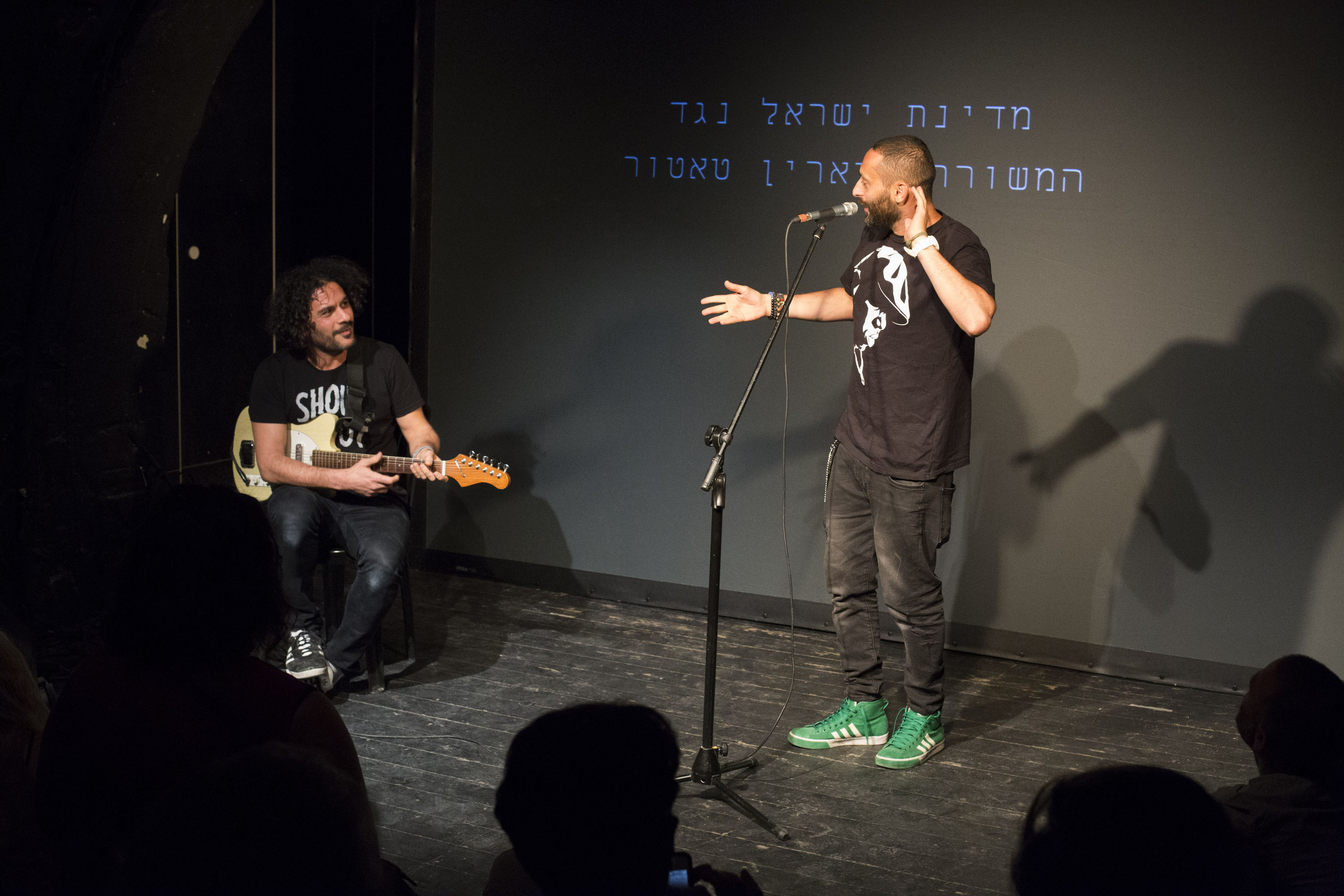
Another important detail is the scope of audience reached by the video. The indictment states that up to a few days after Tatour’s detention, her video was viewed 153 times (according to YouTube’s count, which includes some views by the interrogators themselves). In her summary, the prosecutor speaks of the “enormous potential for exposure” of Tatour publications on the Internet. On the other hand, the same video had tens of thousands of views on Regev’s Facebook page. Surprisingly, the minister was neither arrested nor interrogated, and apparently was not even requested to remove the dangerous video.
Evidence rejected and evidence accepted
Attorney Lasky submitted a request to the court to add the two new pieces of evidence to the case. It should have been a simple technical procedure.
However, in this specific case, the prosecution is conducting a war of attrition on every detail. After lengthy negotiations, an additional hearing of the trial was scheduled for November 15th to discuss the admissibility of the new evidence. In this hearing, the prosecutor demanded that whoever took the screenshot from Tatour’s Facebook page be cross-examined as a condition for its submission. This meant allowing the prosecutor to interrogate either Tatour herself or her attorney, Haya Abu Warda. Finally, the defense team decided not to agree to such an interrogation, which could have opened the door for the prosecutor to raise additional issues, giving up the opportunity to submit the new evidence.
Regarding the video from Regev’s Facebook page, however, the prosecution took a different line. It agreed to submit the video as evidence, if the prosecution would also be allowed to submit other videos from Regev’s Facebook page in which she rails against Tatour and those in solidarity with her. For some reason, it was suddenly possible to submit videos from Facebook without the need to interrogate witnesses. Apparently the prosecutor was convinced that Regev’s incitement against Tatour would affect the judge more than the legal argument of discriminatory enforcement.
Oral summaries after written summaries
The prosecutor used the presentation of the additional evidence for yet another procedural victory. When the testimonies stage came to an end, the prosecutor requested to move to oral summaries, while the defense insisted on its right to submit written summaries. When the judge accepted the defense’s request, the prosecutor requested the opportunity to respond to the defense summaries. She explained that during verbal summaries, she could interrupt the defense’s statement, which would not be possible during written summaries. The judge ignored this unusual request.
Now, because of the additional evidence, the judge has scheduled a round of oral summaries to be heard on December 28, after the written summaries are submitted.
Legal struggle over house arrest
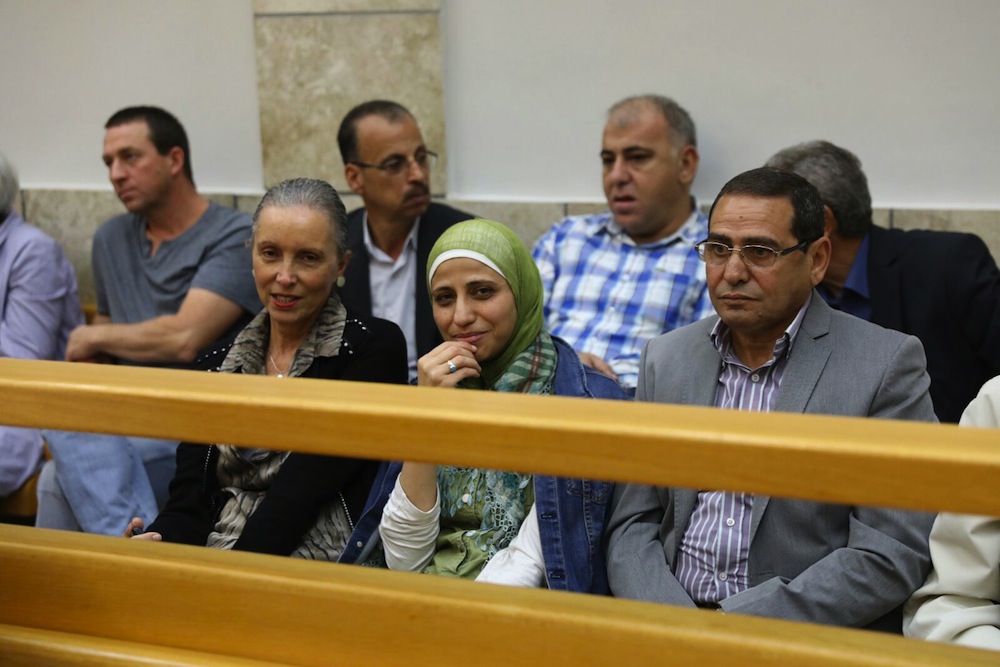
By now it has been over two years and two months since Tatour’s arrest. Even when she is allowed to leave her house during the day, she must be accompanied at all times by a court-authorized custodian. Under such conditions it is clear that she cannot work or live a normal life.
In most cases, the conditions of detention are relieved with the passage of time with the consent of the prosecution. But in Tatour’s case, the prosecution continues to stress the poet’s supposed dangerousness and opposes any relief. In view of the prolonged trial with no clear end date, Lasky filed an application to cancel Tatour’s house arrest. The request was heard on November 20 before Judge Naaman Idris, the same judge who, two years ago, ordered Tatour’s detention until the end of legal proceedings. The hall was full of friends who came to support the poet, hoping that the show of support would encourage the judge rethink the case. The prosecutor repeated her objection to granting Tatour any relief without even bothering to explain.
The judge delayed his judgment to December 4th, when he announced his rejection of the request. In order to show that he does not ignore the lengthening of the detention for such a long period of time, he extended the period during which Tatour is allowed to leave the house, to between 9 a.m. and 10 p.m.. Yet she still must be accompanied by a custodian, which means that the relief is only symbolic.
Yoav Haifawi is covering this trial and more on his blog, Free Haifa. A version of this article was first published in Hebrew on Local Call. Read it here.

